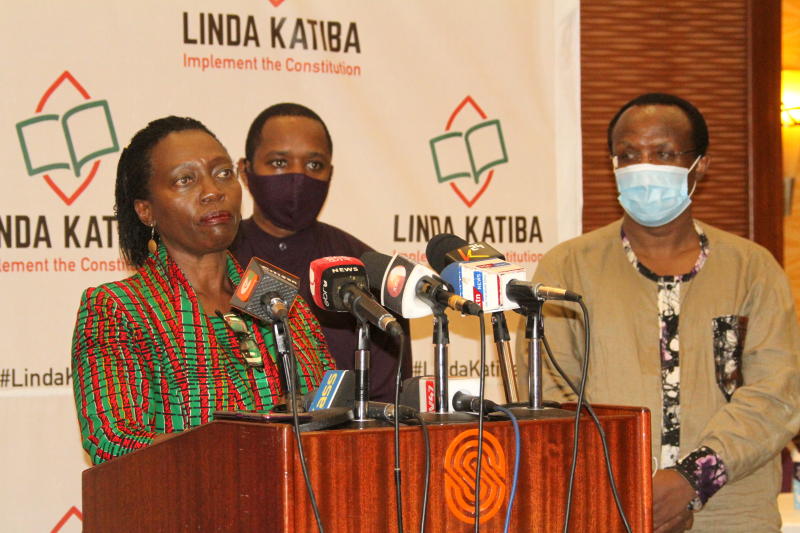×
The Standard e-Paper
Fearless, Trusted News

From left: Linda Katiba lobby group led by Narc Kenya party leader Martha Karua, economist David Ndii and activist Boniface Mwangi address a press conference on BBI report in Nairobi. [David Njaaga, Standard]
Behind the public glare, a silent legal battle is being waged to stop the proposed amendment of the Constitution of Kenya through the Building Bridges Initiative.